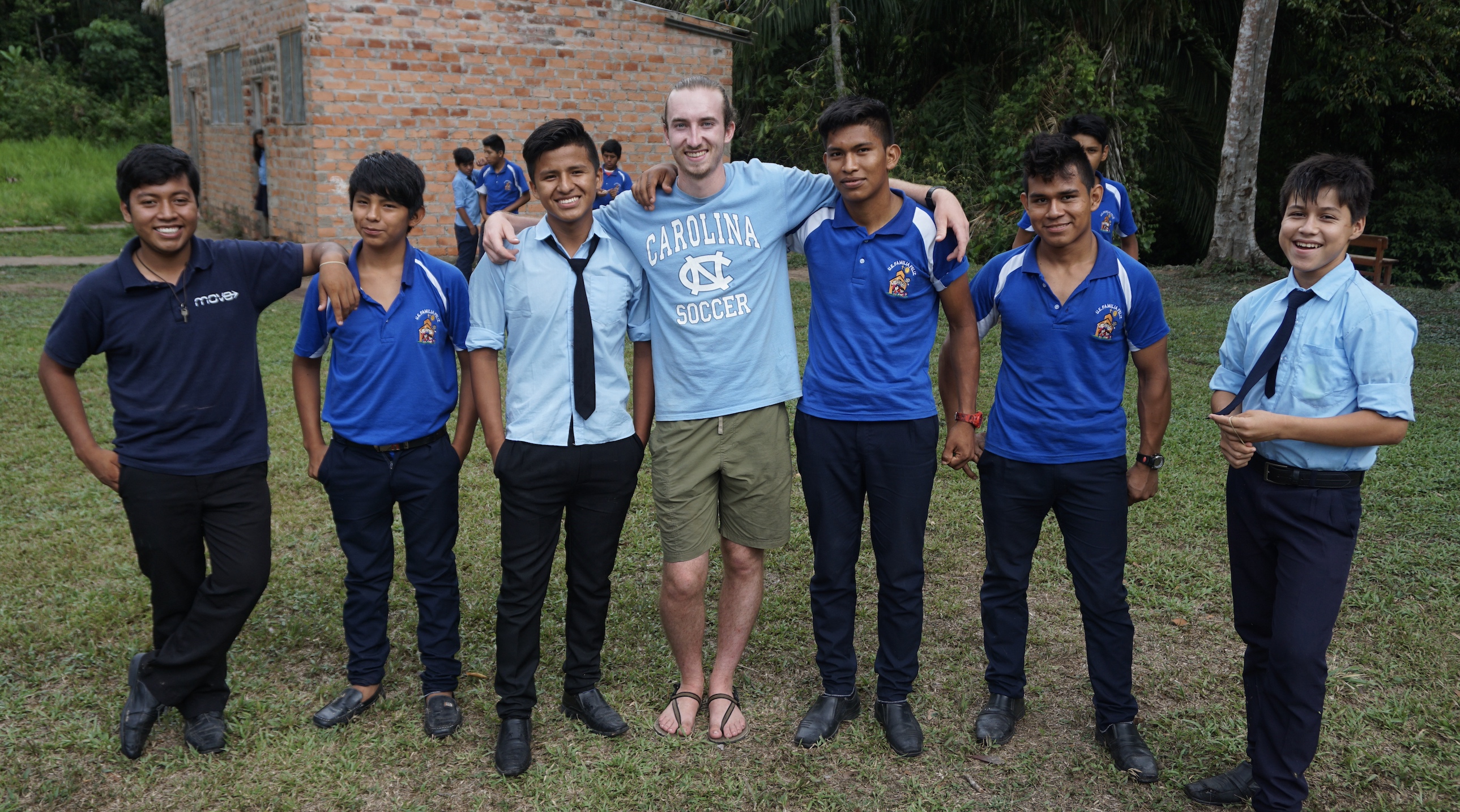
Parent Information
What's It Like to Be an SM Mom?
Beth Clark shares the experience of sending her son to Bolivia

Questions Parents Commonly Ask
Where does the cost to cover being an SM come from?
How much are student missionaries expected to fundraise?
How does a student start an application?
Do student missionaries receive any scholarships?
Upon the student's return to Southern, they will receive up to $1,500 SM scholarship if they meet the following criteria:
- Before Serving: ($250 If all steps below are completed)
- Complete all steps of the application process
- Attend all sessions of the NOND-099 Student Missions Orientation Class and fulfill all requirements
- Attend the Student Missions Exit Retreat in its entirety
- Attend and participate in the SM Dedication Vespers Program
- While Serving ($1000 if the following conditions are met)
- Spend at least 200 days in the mission field
- Honor the commitment to the “Dating Agreement”
- Complete the work assigned to them by their immediate supervisors
- Uphold a distinctly Seventh-day Adventist lifestyle
- Do not come under legitimate complaint or disciplinary action from sending organization, calling organization, or other relevant stakeholders
- After Serving ($250 if both of the following are fulfilled)
- Attend the Student Missions Re-entry Retreat in its entirety
- Complete a Re-Entry Interview
Transfer students and students who complete one semester of service (100 days of service required) are eligible to receive half of the SM scholarship described above. Students who attend and then leave Southern for gap year experiences but do not go through the official SM Program are not eligible for a scholarship upon return.
My child is just a student. How can they be qualified to do their assigned work?
Isn't it best for my young adult to wait until after graduation?
What about student loans?
Once a student has graduated with a bachelor's degree the 6-credit courses are no longer available to them. If requested, we will provide a letter to the student that they can give to their loan company. This letter will explain that the student is going to serve and ask the loan company to provide whatever assistance is requested by that student. We cannot guarantee the loan company will be gracious and defer the loan repayments, but most graduates have had good success with their requests.
When should a student check-in for a flight?
What about safety?
It is important for students and parents to accept that safety can never be guaranteed for student missionaries. Though our hometown of Chattanooga has inherent risks, traveling (especially internationally) generally involves additional risks. We attempt to give every student missionary as many tools as possible to do his or her job safely, and we vet our partner organizations to ensure students have the greatest chance of success possible. There is a required training for all outgoing SMs where safety, travel medicine, cultural issues, conflict management, mental health in the mission field, and other key topics are addressed. Though everyone is likely to encounter certain uncomfortable situations, we encourage students "when you have the choice, choose safely."
Who picks where a student serves as a missionary?
How does my student get a plane ticket?
Domestic students are responsible for purchasing their own tickets.
What about insurance?
- Accident and illness insurance (this policy does not cover pre-existing conditions or routine medical care)
- Personal loss insurance (e.g. stolen laptop)
- A small life insurance policy
Who takes care of the travel arrangements?
Do they need a passport?
Will they need a visa?
Can I send my student money?
How about sending packages?
How easy is it to contact my student?
May I visit my student?
May I take my young adult away from the mission location to travel?
It will depend on the administration and scheduled program of the mission location. Some projects are fully operational around the holidays, so students would need to find a different time to leave if desired. Your child will need to work out with their supervisor the feasibility and best time for a break before any travel arrangements are made. Please do not arrange the break to be for an excessive amount of time as the main focus of a student missionary's service period should be to serve.
May my SM come home for Christmas?
What kind of support is available to my young adult when they return home?
Still have questions?
We know missions is a big step not only for students but also for their families. As other questions arise please do not hesitate to contact our team.